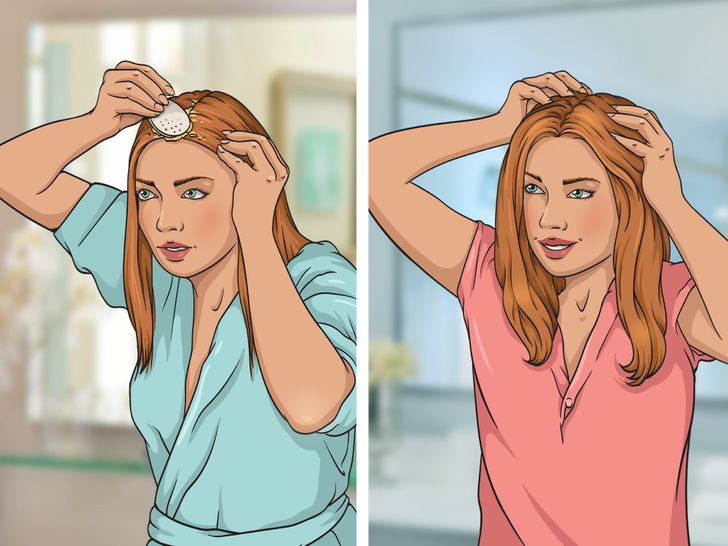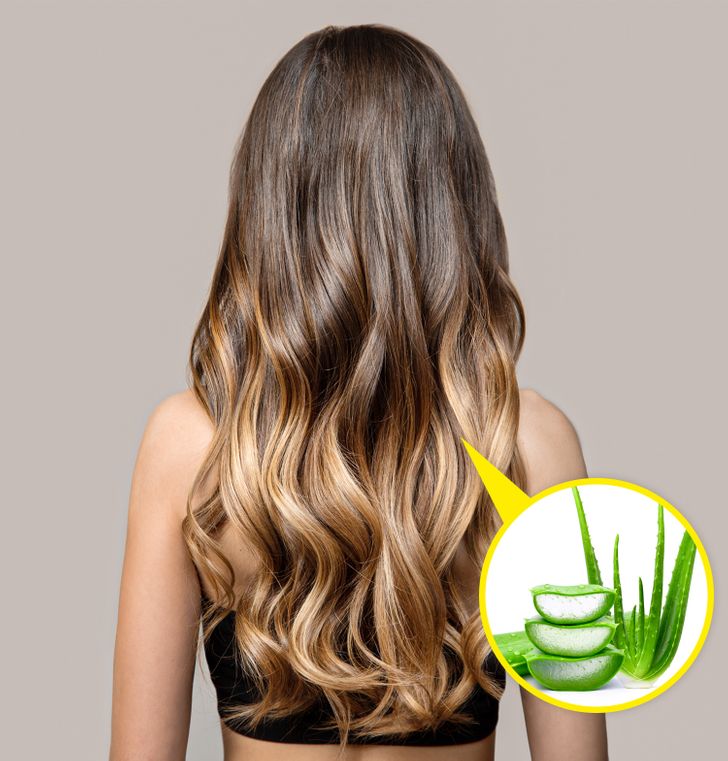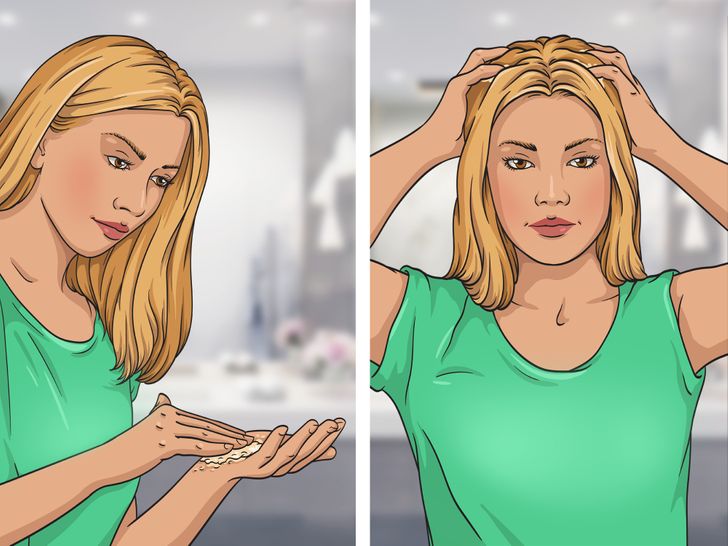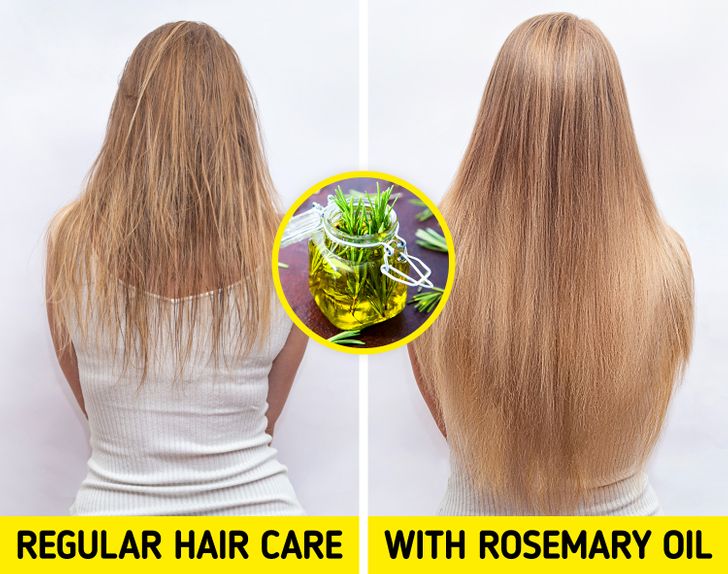Achieving long, thick, and healthy hair is a common goal for many, yet modern lifestyles and environmental stressors can make it challenging. Fortunately, nature offers a wealth of remedies that can help stimulate hair growth and enhance thickness. In this comprehensive guide, we explore 5 natural remedies you can use to stimulate hair growth and thickness. By leveraging powerful ingredients like green tea extract, dandelion, aloe vera, peppermint oil, and rosemary oil, you can improve your hair’s health from root to tip.
These natural remedies not only promote hair growth but also work to strengthen hair follicles, improve scalp circulation, and reduce inflammation.
Let’s dive into each remedy in detail, supported by scientific insights and expert recommendations, and learn how you can incorporate these powerful ingredients into your daily hair care routine.
Green Tea Extract: Boost Antioxidants and Improve Scalp Health

Green tea is renowned for its potent antioxidant properties, which can do wonders for your hair. Rich in polyphenols and catechins, green tea extract helps neutralize free radicals and reduce oxidative stress—a major contributor to hair loss and thinning.
How Green Tea Extract Promotes Hair Growth
Antioxidant Power:
The high levels of antioxidants in green tea protect hair follicles from damage caused by environmental stressors and free radicals. This protection supports healthy hair growth and prevents premature aging of the scalp.
Scalp Stimulation:
Green tea can improve blood circulation to the scalp, ensuring that hair follicles receive essential nutrients and oxygen. This enhanced circulation fosters a healthy environment for hair growth.
DHT Inhibition:
Research suggests that green tea may help inhibit the production of dihydrotestosterone (DHT), a hormone linked to hair loss. By reducing DHT levels, green tea extract can help prevent hair thinning and promote thicker hair.
How to Use Green Tea Extract for Your Hair
DIY Hair Rinse:
Brew a strong cup of green tea, allow it to cool, and use it as a final rinse after shampooing. Let it sit for 5–10 minutes before rinsing with cool water.
Scalp Massage:
Mix green tea extract with a few drops of carrier oil (like coconut or jojoba oil) and massage into your scalp. This not only soothes the scalp but also stimulates blood flow.
Topical Treatments:
Look for shampoos and conditioners that contain green tea extract for a convenient way to incorporate its benefits into your routine.
For more details on the benefits of green tea for hair, check out Healthline’s article on green tea benefits.
Dandelion: Nature’s Detoxifier for Your Scalp

Dandelion, often regarded as a pesky weed, is actually a powerhouse of nutrients that can benefit your hair and scalp. Rich in vitamins A, C, and D, as well as minerals like iron and calcium, dandelion helps detoxify the scalp and promote a healthy environment for hair growth.
The Benefits of Dandelion for Hair Growth
Detoxification and Cleansing:
Dandelion has natural diuretic properties that help remove toxins from the body, including those that may accumulate on the scalp. A clean, toxin-free scalp is essential for optimal hair growth.
Nutrient Boost:
The vitamins and minerals found in dandelion support hair follicle health, ensuring that your hair receives the necessary nutrients to grow stronger and thicker.
Anti-Inflammatory Properties:
Dandelion can reduce inflammation on the scalp, alleviating issues such as irritation and dandruff that can hinder hair growth.
Incorporating Dandelion into Your Hair Care Routine
Dandelion Tea Rinse:
Brew dandelion tea and let it cool to room temperature. Use this tea as a rinse after shampooing to cleanse your scalp and boost hair growth.
Homemade Dandelion Oil:
Infuse dried dandelion leaves in a carrier oil (such as olive or almond oil) for a few weeks, then strain and apply it to your scalp as a nourishing treatment.
Supplementation:
Consider dandelion supplements, which are available in capsule or liquid form, to support overall hair health from the inside out.
For additional insights into natural detoxifiers for hair, visit Medical News Today’s article on dandelion benefits.
Aloe Vera: Soothing Hydration for Hair and Scalp

Aloe vera is celebrated for its soothing and hydrating properties, making it a popular remedy for a variety of skin and hair issues. Its high water content, along with vitamins and enzymes, makes aloe vera an excellent natural moisturizer for the scalp, promoting healthier and thicker hair growth.
How Aloe Vera Stimulates Hair Growth
Hydration and Moisture:
Aloe vera deeply moisturizes the scalp, preventing dryness and flakiness that can disrupt hair growth. A hydrated scalp is less prone to irritation and more conducive to healthy hair.
Enzyme Activity:
The enzymes in aloe vera help repair dead skin cells on the scalp, unclog hair follicles, and promote a smooth, clean surface for new hair to grow.
Nutrient Absorption:
Aloe vera enhances the absorption of essential nutrients from other hair products, making your overall hair care routine more effective.
Practical Aloe Vera Applications
Aloe Vera Gel:
Apply pure aloe vera gel directly to your scalp and hair. Leave it on for 30 minutes to an hour before rinsing thoroughly. Repeat this process 2–3 times a week.
Aloe Hair Mask:
Mix aloe vera gel with coconut oil and a few drops of essential oils, then apply as a hair mask for added moisture and nourishment.
DIY Scalp Treatment:
Combine aloe vera juice with a carrier oil and use it as a leave-in treatment to continuously hydrate your scalp throughout the day.
For more on aloe vera’s benefits, see WebMD’s comprehensive guide on aloe vera.
Peppermint Oil: A Refreshing Stimulator for Enhanced Circulation

Peppermint oil is not only invigorating but also offers remarkable benefits for hair growth due to its ability to improve blood circulation in the scalp. Its natural cooling effect can also alleviate scalp irritation and stimulate the hair follicles.
How Peppermint Oil Works to Promote Hair Growth
Enhanced Blood Circulation:
Peppermint oil stimulates blood flow to the scalp, ensuring that hair follicles receive adequate oxygen and nutrients for growth. Improved circulation is directly linked to stronger, healthier hair.
Antimicrobial Properties:
With its natural antimicrobial qualities, peppermint oil helps keep the scalp clean and free from bacteria and fungi that may hinder hair growth.
Cooling Sensation:
The cooling effect of peppermint oil soothes an irritated scalp, reducing inflammation and promoting a more conducive environment for hair regeneration.
Using Peppermint Oil in Your Hair Care Routine
Diluted Scalp Massage:
Mix a few drops of peppermint oil with a carrier oil like coconut or jojoba oil and massage it into your scalp. This stimulates blood flow and provides a refreshing sensation.
Hair Rinse:
Add a few drops of peppermint oil to your shampoo or conditioner to boost its effectiveness. This ensures that your scalp benefits from its circulatory and antimicrobial properties.
DIY Treatment:
Create a hair mask by combining peppermint oil with aloe vera gel and applying it to your scalp for 20–30 minutes before rinsing.
For further reading on the benefits of peppermint oil for hair growth, visit Healthline’s article on peppermint oil.
Rosemary Oil: The Timeless Remedy for Hair Strength and Density

Rosemary oil has been used for centuries as a natural remedy to stimulate hair growth and improve hair thickness. Its rich concentration of antioxidants and anti-inflammatory compounds helps strengthen hair follicles and reduce hair loss.
The Mechanism Behind Rosemary Oil’s Effectiveness
Improved Circulation:
Like peppermint oil, rosemary oil enhances blood circulation to the scalp, ensuring that hair follicles are well-nourished and more likely to produce strong, thick hair.
Anti-Inflammatory Action:
Rosemary oil reduces inflammation on the scalp, which can otherwise lead to hair thinning and loss. Its soothing properties help create a healthier environment for hair growth.
DHT Inhibition:
Some studies suggest that rosemary oil may help reduce the production of dihydrotestosterone (DHT), a hormone that contributes to hair loss. By inhibiting DHT, rosemary oil can help prevent hair thinning and promote regrowth.
How to Incorporate Rosemary Oil into Your Routine
Scalp Massage:
Dilute rosemary oil with a carrier oil and massage it into your scalp to boost circulation and promote hair health.
Hair Conditioner Boost:
Add a few drops of rosemary oil to your conditioner to enhance its effectiveness. This simple addition can provide lasting benefits for hair strength and density.
DIY Hair Mask:
Combine rosemary oil with aloe vera gel and a bit of argan oil to create a nourishing hair mask that helps restore moisture and vitality to your hair.
For more expert advice on using rosemary oil for hair care, check out WebMD’s guide on essential oils.
Integrating Natural Remedies into a Holistic Hair Care Routine
While each of these natural remedies offers unique benefits for stimulating hair growth and increasing thickness, the key to success lies in integrating them into a holistic hair care routine. By combining these remedies with proper nutrition, regular exercise, and stress management, you create a comprehensive approach that addresses hair health from multiple angles.
Practical Tips for a Holistic Hair Care Routine
Balanced Diet:
Consume nutrient-rich foods high in vitamins, minerals, and proteins that support hair growth. Foods like leafy greens, lean meats, and nuts can complement the benefits of natural topical remedies.
Hydration:
Staying well-hydrated is essential for overall health and ensures that your hair remains moisturized and resilient.
Regular Scalp Care:
Maintain a consistent routine of gentle scalp massages, weekly treatments, and proper cleansing to promote circulation and remove buildup.
Stress Management:
Stress can negatively affect hair growth. Incorporate relaxation techniques such as meditation, yoga, or regular physical activity to keep your stress levels in check.
Avoid Harmful Practices:
Limit the use of heat styling tools and harsh chemical treatments that can damage hair and negate the benefits of your natural remedies.
For additional guidance on maintaining a holistic hair care routine, visit Harvard Health Publishing and Healthline’s hair care section.
Conclusion: Achieve Fuller, Thicker Hair with Nature’s Best Remedies
Harnessing the power of natural remedies like green tea extract, dandelion, aloe vera, peppermint oil, and rosemary oil can revolutionize your hair care routine. These ingredients, backed by both traditional wisdom and modern scientific research, offer a safe, effective, and holistic approach to stimulating hair growth and enhancing thickness.
By integrating these natural solutions into your daily regimen and combining them with a balanced lifestyle, you can address common hair challenges such as thinning, slow growth, and scalp health issues. Remember, consistency is key—embrace these practices as part of your long-term hair care strategy, and you may soon notice significant improvements in the health and vitality of your hair.
Whether you’re looking to combat hair loss, boost volume, or simply maintain healthy locks, these natural remedies provide a valuable toolkit for achieving your goals. Stay informed, be patient with your progress, and enjoy the journey toward fuller, thicker, and more resilient hair.
For further reading on natural hair growth remedies and holistic hair care, explore trusted sources like WebMD and Healthline. Embrace the natural power of these remedies and unlock the secret to beautiful hair, naturally.









Leave a Reply